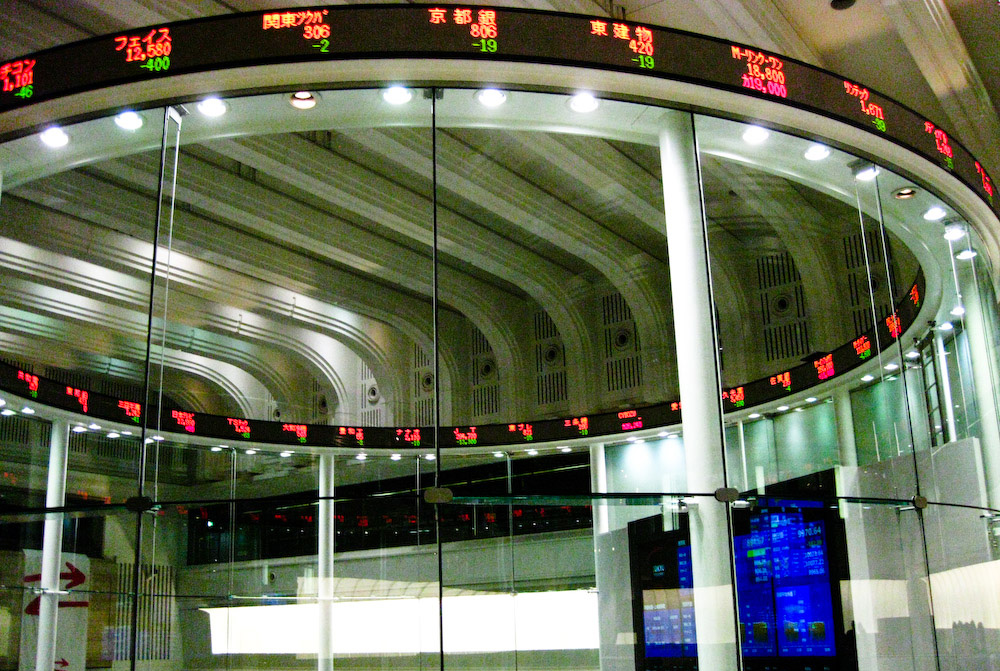Nervous Markets Easily Spooked
High Market Volatility
After a few dismal days, global stock markets staged a rebound of sorts with Japan leading the surge as both the broader Topix index (+9.3%) and the tech-heavy Nikkei 225 (+10.2%) rose in tandem pulling up indices across Asia.
In early-morning trading, European markets also recovered some of their losses although without the fanfare prevalent in the east. The Pan-European STOXX 600 advanced 0.6% whilst exchanges in Germany, France, and the UK registered modest gains but remained in a holding pattern. US futures edged higher as well, pointing to the presence of a few bargain hunters.
Market volatility remains exceptionally high. Last week, it took but a ripple in US employment numbers to spook investors. Pundits did not take long to wag their finger at the US Federal Reserve. It was accused, almost in unison, as having missed the signs of a slowing US economy and an opportunity to do something about that.
The wildest seesawing took place in Japan. Yesterday, the Topix nosedived twelve percent in its steepest decline since 1987 only to recover nearly all lost ground today. A mismatch between the Bank of Japan’s cheap-money policy and the US Federal Reserve’s reluctance to cut interest rates has introduced a significant ‘carry trade’ whereby investors borrow low-cost yen to chase investment opportunities in euros and dollars.
As this carry trade blossomed, it weakened the yen considerably, bolstering the foreign exchange earnings of Japanese corporates and attracting fresh outside capital to the country’s stock markets. However, the disappointing US job report released late last week makes a rate cut by the Federal Reserve in September all but inevitable. That, plus the Bank of Japan’s modest hike of its benchmark rate from around 0.1% to 0.25% caused plenty of speculative bets to turn sour. The yen promptly recovered from a 37-year low catching short-sellers on the wrong end of the equation.
Shakedown
The violent downturn on Monday ejected most rouge speculators from the market; those with margin bets on Japanese stocks. The leveraged positions were dismantled in double-quick time, causing the market to plummet. Once the shakedown was completed, investors happily returned. However, the heyday of ‘carry trade’ is over which, some fear, could prompt selloffs in other markets. Also, the world’s largest creditor nation may need to unwind some of its foreign assets to meet domestic liabilities as the yen appreciates in value and slims profit margins at large export-driven corporates.
Meanwhile, the US economic outlook is not particularly rosy as the country’s monetary policymakers discover that taming inflation implies a measure of pain and suffering. Investors have long been enamoured of a ‘goldilocks’ scenario that would see inflation tackled without much, if any, collateral damage. However, Friday’s job report showed a pronounced slowdown in the pace of hiring. Also, several CEOs crept out of the proverbial woodwork to express concerns over a deterioration in consumer sentiment and spending.
Analysts at Goldman Sachs even put a number on it and prophesied a one-in-four chance of the US economy falling into recession next year. Europe isn’t faring any better with geopolitical tensions grabbing headlines whilst consumers essentially remain nonplussed. China is likewise unable to spur global growth with its all-important manufacturing sector going nowhere in a hurry.
Go Away
A well-known saying advises investors to “sell in May and go away.” Market lore has it that low liquidity over the summer season exacerbates sudden moves. This ‘Halloween indicator’ holds an interesting truth, substantiated by historical data: during the six months between November and April, returns are significantly higher in 36 of the 37 markets academic researchers investigated. This has been true in the UK since 1694. However, research has so far failed to unearth a cause for the phenomenon.
Leaving popular wisdom, statistics, and crystal spheres aside, negative overall market sentiment permeates into specific sectors. The Philadelphia Semiconductor index that tracks the performance of chipmakers has lost about forty percent of its market value in a matter of months. The discovery of design flaws in its newest chip caused Nvidia stock to take an outsized hit. Intel lost over a quarter of its market capitalisation after the company announced that its intention to slash 15,000 jobs.
Also, investors are catching on to the artificial intelligence hoax. Whilst AI may have some useful and profitable applications, the technology is by no means the be all, as touted by its proponents and fanboys. An AI bubble is being inflated with vast sums of money pumped into the technology without any clarity of what problems it is meant to address. Investor awareness of AI’s status as a solution looking for a problem is growing.
Cash Is King
Warren Buffett was, as per his sage usual, one of the first to catch on. He slashed Berkshire Hathaway’s stake in Apple by half, adding $76 billion to his formidable hoard of cash, now estimated at a rather staggering $277 billion. However, Mr Buffett did assure investors that Apple will remain his company’s largest single investment. Berkshire Hathaway is also busy reducing its stake in Bank of America and a few other companies.
The prevailing consensus amongst Buffett-watchers is that in times of a cooling economy, cash is king. It can, and in all likely will, be deployed when a market correction has taken place to snap up stocks at a discount.
With tech receiving a pounding of note – the ‘Magnificent Seven’ represent about 52% of the year-to-date return on the S&P 500 and are all down from their previous highs – all eyes are on the US Federal Reserve and the hope of a 0.5 percentage point rate cut next month, followed by a rinse-and-repeat routine for the remainder of 2024 shaving at least two full percentage points off its benchmark interest rate. Anything more timid than that is sure to disappoint with devastating effect.
Cover photo: The Tokyo Stock Exchange.
© 2009 Photo by Jacob Ehnmark


